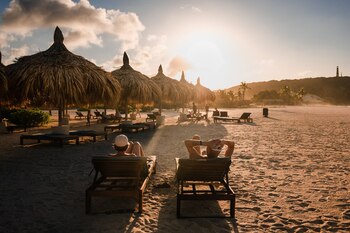
They drank rum and danced to the sound of a radio cassette that played Russian electropop music in the rudimentary waiting room of an airport. Singing “Not Enough”, they enjoyed the last hours of their tropical vacation.
These travelers could have been mistaken for tourists on spring break. In fact, they were Russians waiting to board the last flights back to Moscow before sanctions cut their way back home, with their future and that of their hosts disrupted by the invasion of Ukraine by the President Vladimir Putin.
Russian tourists had helped breathe an unlikely new life into the idyllic Venezuelan island of Margarita, once a mecca of Caribbean tourism and devastated in recent years by the economic crisis, international isolation and the pandemic. Under an agreement approved by the allied governments of both countries, more than 10,000 Russians have visited Margarita since September on direct charter flights from Moscow, where it was the island's only international connection.
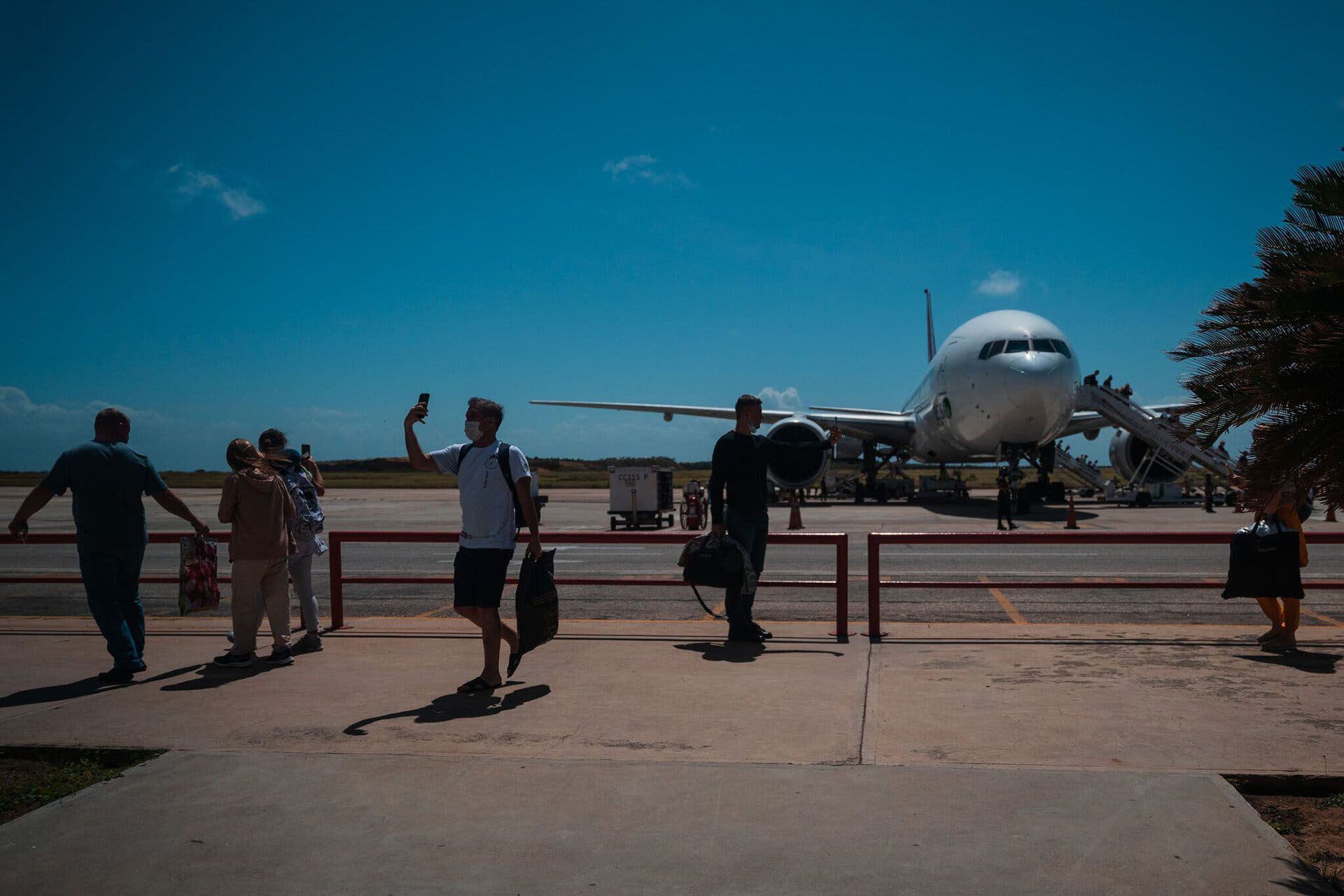
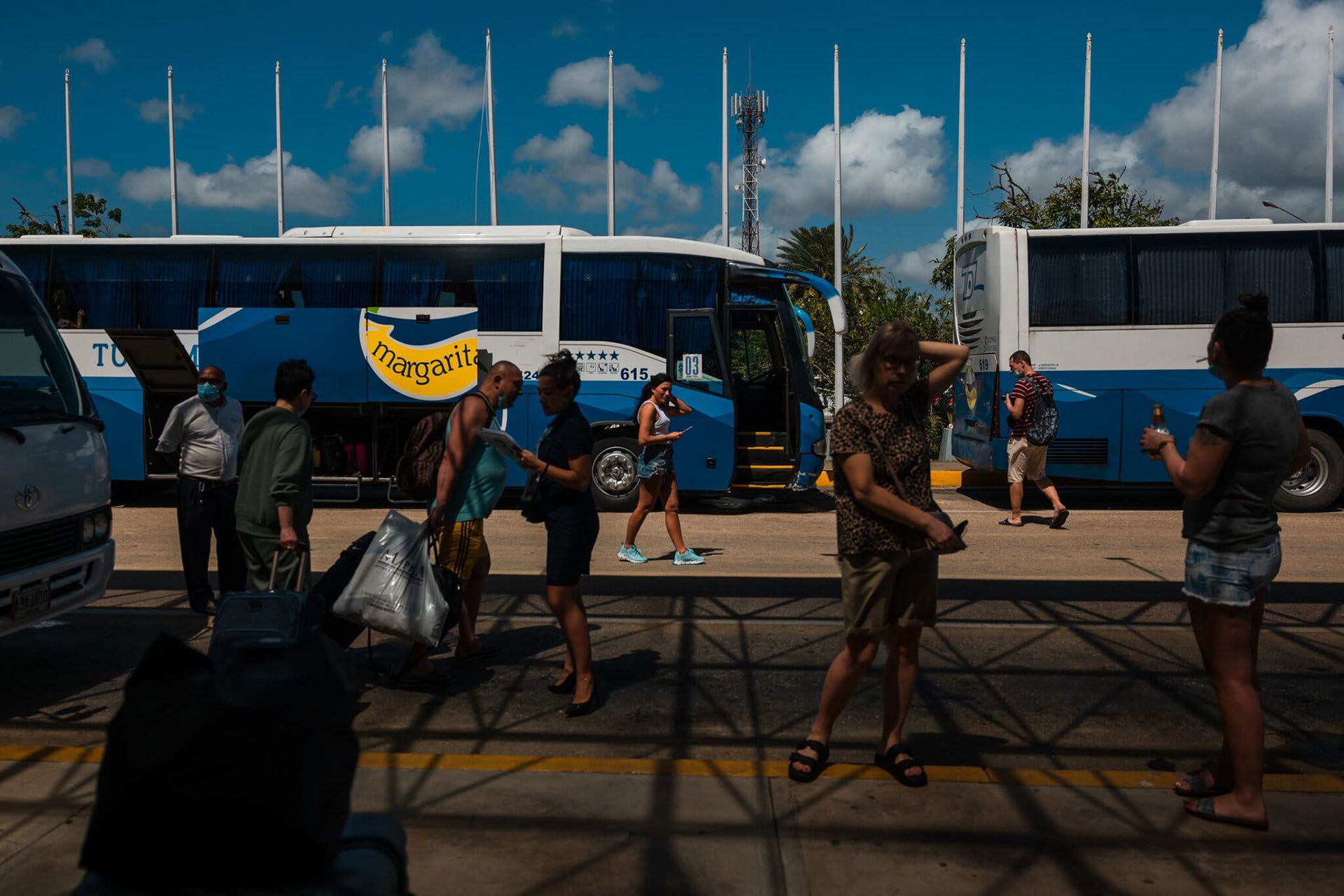
The agreement gave jobs to hundreds of Margarita residents in 20 hotels and forced the central government to improve the island's battered electricity, water and gasoline supply. Endemic crime was reduced; businesses began to reopen; residents who had emigrated began to return.
The recent wave of Russian visitors represented a small fraction of the three million tourists Margarita received annually at its peak in the early 2010s. But the arrival of the first international trips organized in years gave the locals hope that they had changed the course of misfortune.
“We want to embrace any foreigner who comes here,” said José Gregorio Rodríguez, the president of the Chamber of Commerce of the Venezuelan state of Nueva Esparta, an archipelago that includes Margarita. “When you're at zero, any improvement is welcome.”
The Russians were attracted to Margarita by low prices, exoticism, because they did not ask for a visa nor were there restrictions due to the pandemic and by a sun that lasts all year, said tourists interviewed on the island in February and early March. Trips could cost from $850 per person for 13 nights in a three-star, all-inclusive beach hotel, and round-trip flights from Moscow, lasting 15 hours each.
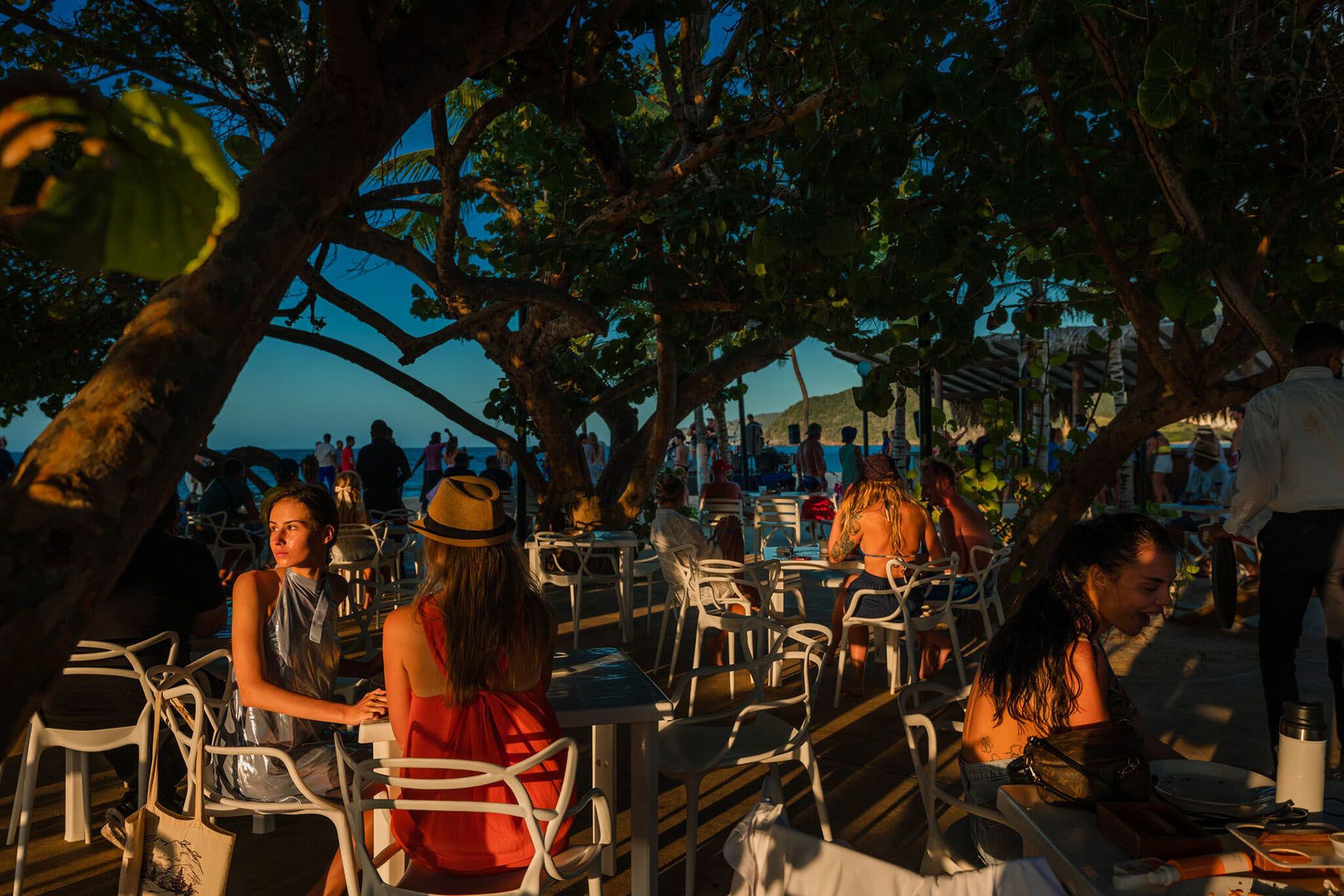
“It's something new, something exciting,” said Lucia Aleeva, a blogger from Kazan. “In a sense, we are the first explorers.”
Some Russian tourists said they had booked tickets to Margarita a day or two before the trip without knowing anything about Venezuela, attracted by the unusually low price of the destination. Most of those interviewed described themselves as small business owners or provincial public workers, and many of them came from state capitals as far away as Chita, a Siberian city near Mongolia. Some had never left Russia; most had never been to Latin America.
Many of the older tourists started their holidays in a stereotypically Russian way: drinking a lot.

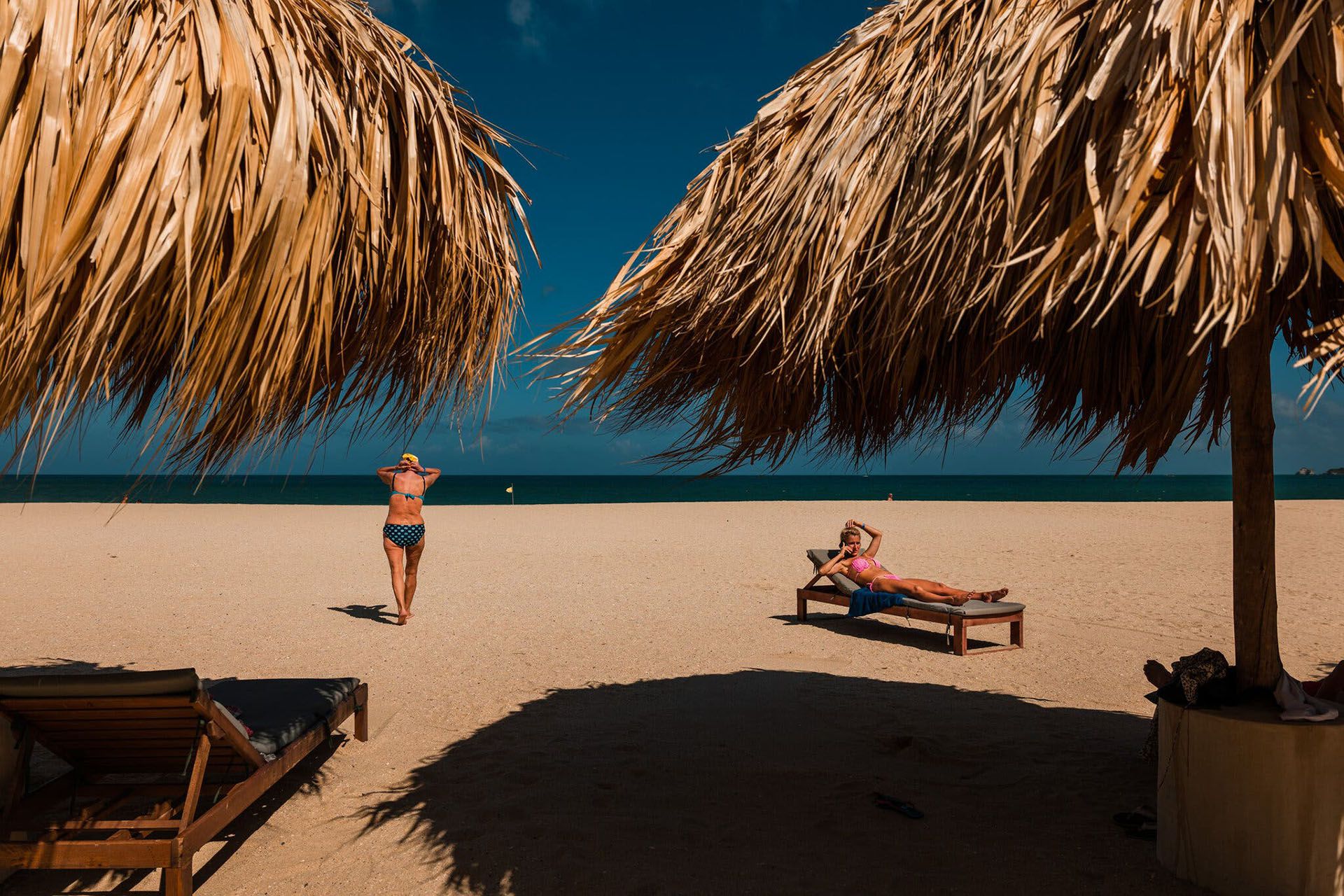
Last month, Algis, who works at a construction company and is from Sochi, in southern Russia, was drunk when he got off the plane into a 32-degree heat dressed in layers of winter clothing. He carried a bag of alcohol bottles bought in a duty-free store in one hand, and a package full of assorted dollar bills in another, saying he intended to invest them in a possible marriage on the island.
Another tourist named Andrey, who rents heavy machinery in the mining town of Chelyabinsk, told during a dinner dressed with copious bottles of cheap Chilean wine that, during an intense drinking session that began in his hometown and lasted to the Moscow airport terminal and on the flight to Margarita, he was surprised by a voice announcing on the speaker of the plane that he had been selected to meet the Venezuelan Minister of Tourism when he landed because he was the 10,000th Russian tourist visiting the island.
Andrey said it was hard for him to stand up straight for photography.

In Margarita's sprawling resort, Sunsol Ecoland, Russians danced until the wee hours of the morning in a beach disco that alternated reggaeton with Russian hits by groups like Leningrad, a foul-mouthed ska group that idealized the exploits of bad life and abundant drink of working-class losers.
During daytime visits to the colonial villages of Margarita, many marveled at the ability of Venezuelans to maintain a good mood despite everyday economic difficulties.
But then, on February 24, Russia invaded Ukraine and the war quickly repercussed in regions far removed from the battlefield.
As the fighting intensified, Western countries and companies closed their airspace to Russian flights and suspended leases and the supply of aviation parts. In response, Russia-focused tour operator Pegas Touristik told its customers who were sunbathing in Margarita that they would have to evacuate.
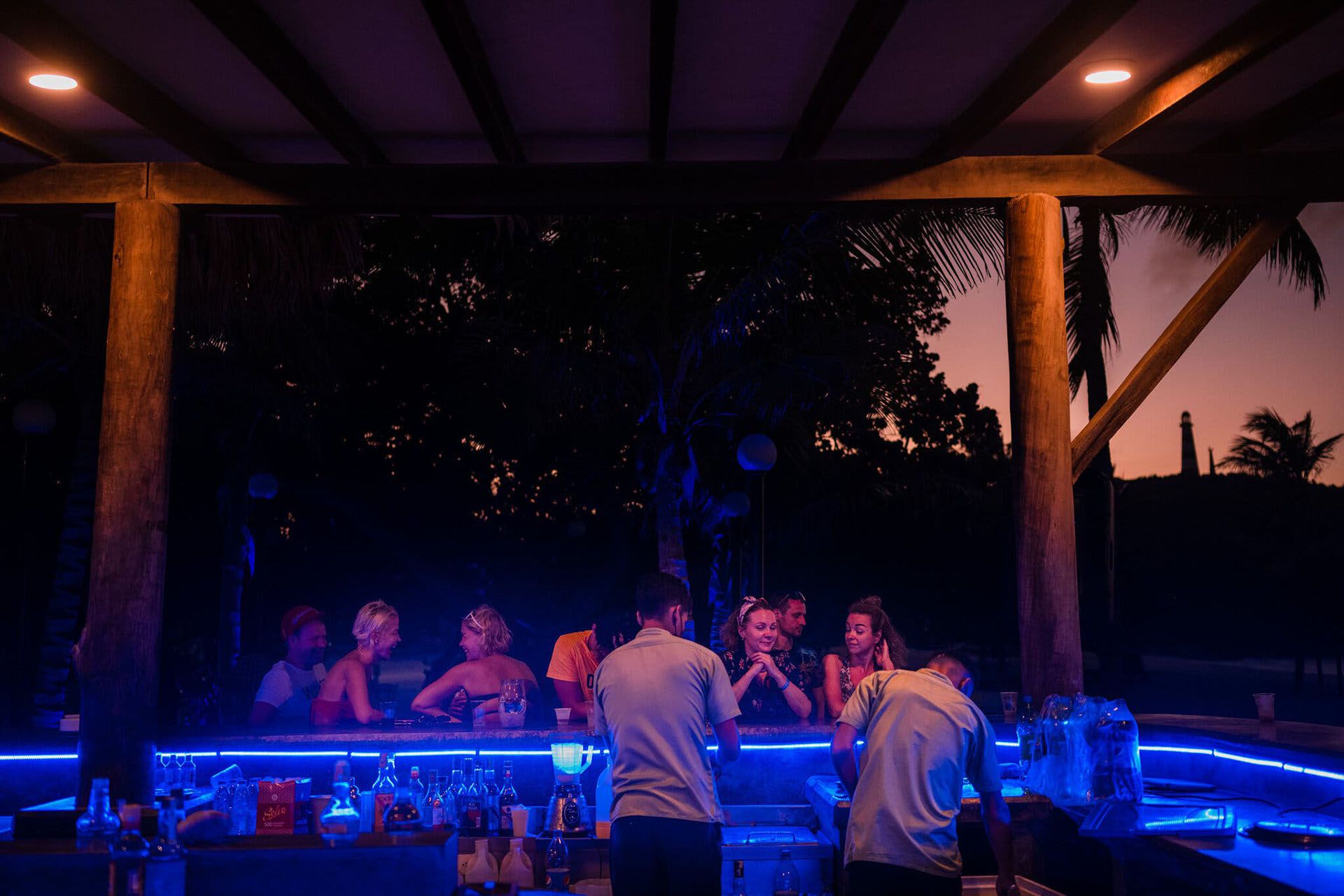

Many began to wonder what hardships would await them now at home.
Inflation in Russia is soaring, fears of scarcity and hoarding are growing and the government imposes currency controls and threatening foreign companies, something reminiscent of life during Venezuela's eight-year economic depression, of which the South American country just came out.
“Fortunately, they have the sea and the sun,” said Yulia, a ministry worker in Moscow. “In a country like ours, surviving turmoil and poverty would be much more difficult and sad.”
Like other Russians interviewed in Margarita since the beginning of the war, Yulia asked not to use her surname. None of the Russian tourists the Times spoke to wanted to comment on the invasion itself, or on the first reports of civilian casualties in Ukraine. They often blamed a poor internet connection for not being aware of the news. The Russian government has made even mentioning war a criminal offence punishable by up to 15 years in prison.

Yulia spent her last days in Margarita on the beach reading George Orwell's dystopian novel 1984.
As the fighting and international sanctions against Russia intensified, the atmosphere in the spas became progressively bleak. The purchasing power of the Russians plummeted along with the ruble, and their bank cards stopped working.
The Russian guests of Sunsol had their last dinner on the island in silence. The usual noise of lively conversation and the movement and clinking of wine glasses in the hotel's large buffet room had disappeared, giving way to the distant sound of the waves.


The disco on the beach was empty. A group of Venezuelan artists danced alone on stage, unsuccessfully trying to cheer up the diseased guests who were contemplating their impending problems.
The Russian currency has lost nearly 37 percent of its value since the start of the war, and hundreds of thousands of its citizens are facing unemployment, while sanctions lead to the closure of businesses at a record pace.
A Russian association of tour operators claimed that international reserves fell by 70 percent in the week after the outbreak of the war.
The mood of the staff at the resorts was equally gloomy.
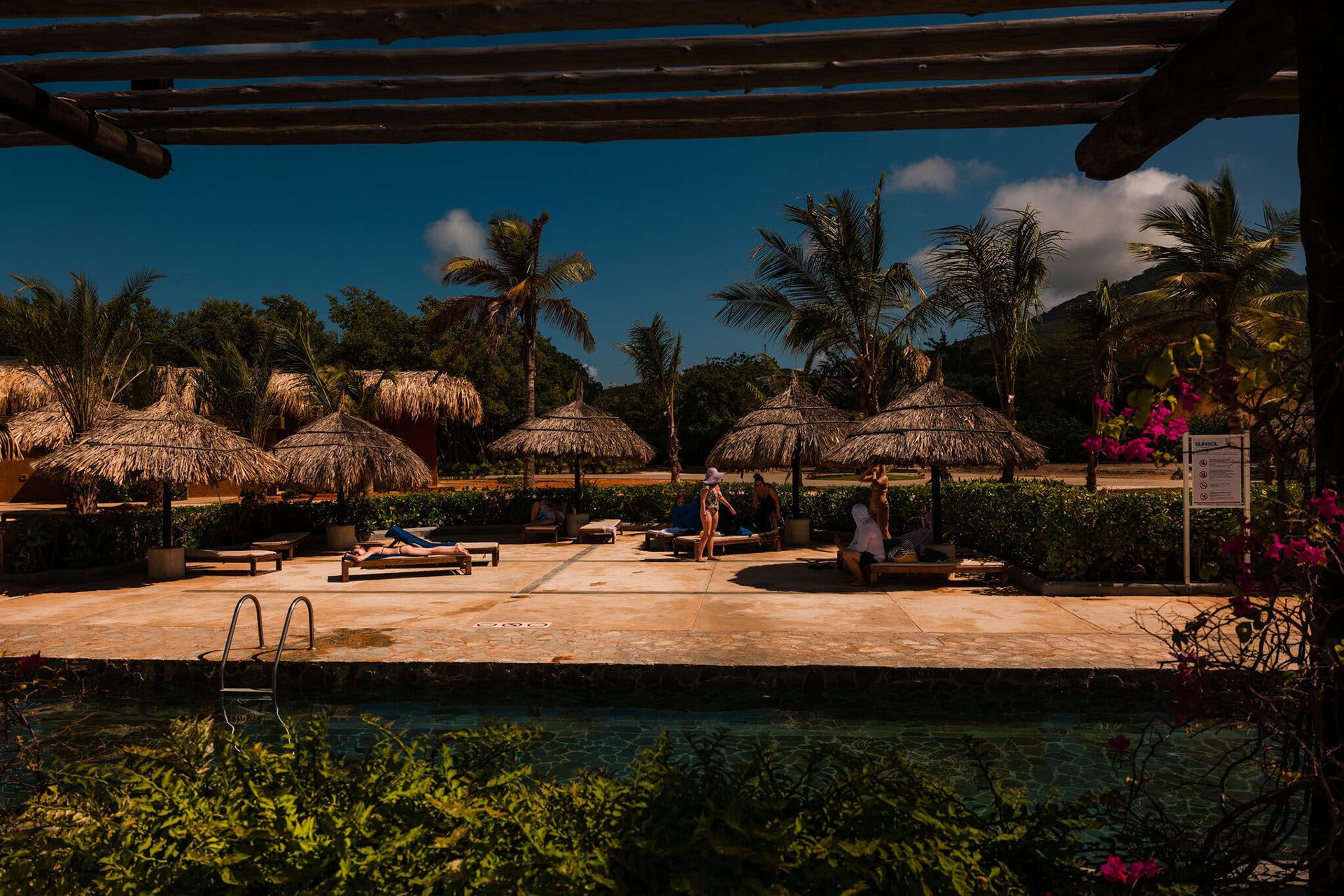
The war was a major blow to Margarita, who expected to receive 65,000 Russian visitors this year. Some businessmen remodeled their dormant hotels to accommodate expected visitors and hired new staff, wishing that Russian flights would open the doors to other international tourists.
Salaries were ridiculous — waiters earned only one dollar a day — but jobs at least provided constant meals in a country where hunger is still widespread. Since the war broke out, many people have already lost their jobs or had their shifts reduced.
Margarita's last flight to Moscow left on March 8. Since then, major Russian airlines have stopped flying westward beyond neighboring Belarus.
Although Pegas continues to announce trips to Margarita starting in April, tourism business owners on the island say the future of the route is uncertain.

Over the last few days of their vacation, some guests said they trusted Putin, who has ruled Russia for 22 years with the support of many Russians.
“We trust our president,” said a tourist from Moscow, also named Yulia. “I don't think it will lead us to collapse.” Her husband, Oleg, intervened quietly: “Well, it's already the collapse.”
Others tried to enjoy what they considered their last glimpse of the outside world. “We decided to disconnect, as if it were the last time,” said Ravil, a designer from Moscow. “We don't know if we'll go back to the same country we left from.”
© The New York Times 2022
Últimas Noticias
Debanhi Escobar: they secured the motel where she was found lifeless in a cistern
Members of the Specialized Prosecutor's Office in Nuevo León secured the Nueva Castilla Motel as part of the investigations into the case

The oldest person in the world died at the age of 119
Kane Tanaka lived in Japan. She was born six months earlier than George Orwell, the same year that the Wright brothers first flew, and Marie Curie became the first woman to win a Nobel Prize

Macabre find in CDMX: they left a body bagged and tied in a taxi
The body was left in the back seats of the car. It was covered with black bags and tied with industrial tape
The eagles of America will face Manchester City in a duel of legends. Here are the details
The top Mexican football champion will play a match with Pep Guardiola's squad in the Lone Star Cup

Why is it good to bring dogs out to know the world when they are puppies
A so-called protection against the spread of diseases threatens the integral development of dogs




